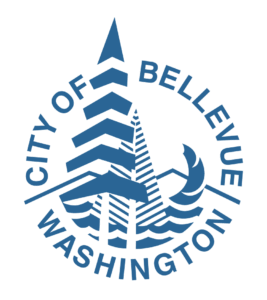Bellevue welcoming affordable housing developers with new incentives
October 23, 2024
 Recent actions by the City of Bellevue could result in the addition of 4,400 affordable housing units in the state’s fifth largest city. The median home price there is around $1.5 million.
Recent actions by the City of Bellevue could result in the addition of 4,400 affordable housing units in the state’s fifth largest city. The median home price there is around $1.5 million.
Bellevue’s initiative to reduce its affordable housing gap enables faith-based organizations in single family land use districts to rezone to accommodate permanently affordable multifamily housing. Ordinance 6743, adopted on June 26, 2023, amended the Land Use Code to establish eligibility criteria, rezone procedures, and criteria for determining the additional capacity available to eligible properties.
Via another ordinance (No. 6744) staff identified 36 eligible church sites. If all of them developed the maximum number of units allowed on their sites, up to 4,400 homes could be built.
In a report published by the Puget Sound Business Journal (PSBJ)¸ Sabrina Velarde, Bellevue’s Housing Stability Program coordinator, told the reporter, “Faith-based organizations are uniquely positioned to understand the needs of the communities they serve,” noting they own a significant amount of land in the city.
Five criteria must be met:
- Owned by a religious organization
- Located in a single-family land use district
- Located on an arterial street
- Located within a half mile of a frequent transit stop, and
- Located within 500 feet of a land use district where multifamily housing or commercial uses are permitted.
If additional properties become eligible in the future, the owners will need to apply for a rezone.
Yichuan Zhao, executive director of Imagine Housing, an affordable housing development and services nonprofit, told PSBJ that density is key so economies of scale can be attained. It’s hard to finance a project with fewer than 60 units, he explained, adding, “The first floor of a multifamily housing building is always the most expensive. As you go up in floors, they get cheaper because you start to get that economy of scale.”
Imagine Housing has provided permanently affordable housing to approximately 1,400 people. Its origins date to 1987 when a small group or parishioners at St. Andrew’s Lutheran Church identified a need for more affordable housing in East King County. They formed St. Andrew’s Housing Group as an independent nonprofit organization focused on creating affordable apartments in the region.
Imagine Housing plans to develop two 100-unit affordable housing buildings at two sites, one of which is at St. Andrew’s Lutheran Church. The second project would be at Saint Peter’s United Methodist Church.
“It’s really amazing to see Bellevue as the leader in this,” Zhao told PSBJ reporter Shawna De La Rosa.
“If other Eastside cities adopt similar land use codes, it could really move the needle on how much affordable housing is developed,” he commented. Finding land is a challenge, he said, noting if it’s on the open market, “we just get outbid.”
Bellevue’s ordinance was adopted four years after the state legislature passed a bill allowing cities and counties to permit more affordable housing density on property owned or controlled by religious organizations.
Bellevue’s Ordinance No. 6747 also established the Affordable Housing Permit Review and Inspection Fee Program to expand efforts to mitigate the cost of development for affordable housing projects. Developers of affordable housing can apply for permit review and inspection fee waivers. The incentive is available to those whose units in the development are affordable at or below 80% of the area median income for the life of the project, as well as for projects providing long-term or permanent supportive housing, certain types of emergency shelters, or services to people experiencing homelessness.
“Like all cities ac ross our region, Bellevue needs more affordable housing,” said Mayor Lynne Robinson in an announcement about the waivers. “Out city is offering developers this tool to incentivize construction on more affordable housing. Bellevue has made it a high priority to create this housing and meet the needs of our community.”
